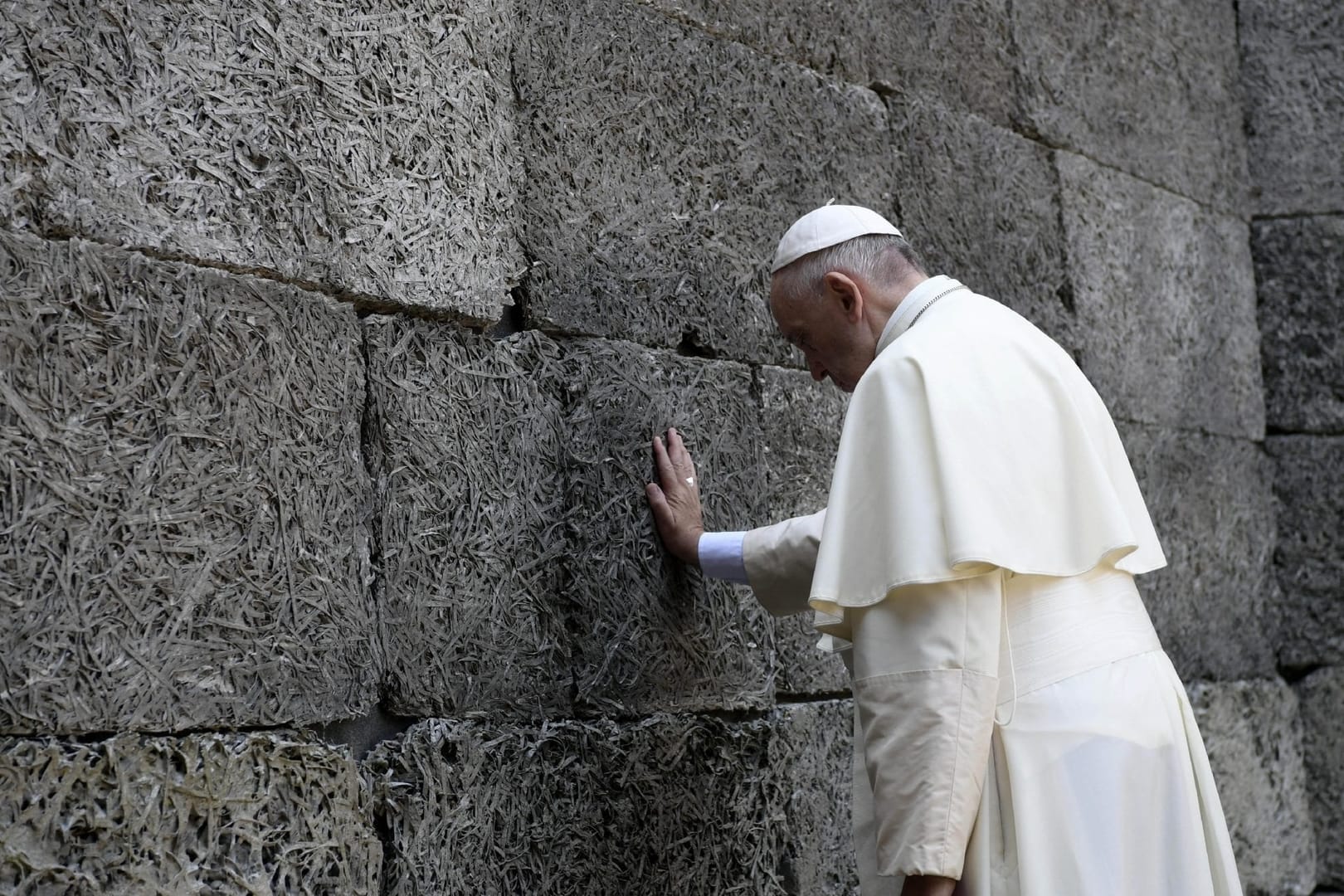ROME — The Vatican has once more called to never forget atrocities directed against the Jews and the horrors of the Holocaust.
During a Permanent Council meeting at the Organization for Security and Cooperation in Europe (OSCE), Monsignor Janusz Urbanczyk, the Vatican’s permanent representative, said that “vigilance is always needed” in order to defend human dignity and peace in the world.
The meeting took place during the International Holocaust Remembrance Day on January 27, which marks the anniversary of the liberation of the prisoners and survivors of the Auschwitz-Birkenau concentration camp.
“The suffering and ultimate sacrifice, the fear and tears, of the countless victims of blind hatred who suffered deportation, imprisonment and death in those perverted and inhuman places must never be forgotten,” Urbanczyk said.
The Holy See has long insisted on the importance of understanding and cooperation with the Jewish community. In July of 2016, Pope Francis became the third pontiff to visit the former Nazi German death camp of Auschwitz in southern Poland.
There, the pope prayed in silence for roughly 15 minutes before meeting with survivors and even leaving a hand-written note at the Auschwitz Memorial site: “Lord, have mercy on your people! Lord, forgiveness for so much cruelty!”
Wpis papieża Franciszka @Pontifex_pl w Księdze Pamiątkowej @AuschwitzMuseum pic.twitter.com/j40iuYDg9g
— Auschwitz Memorial (@AuschwitzMuseum) July 29, 2016
Urbanczyk underlined that concentration camps are not a thing of the past, belonging to the history books or on the fading ink of a number tattooed on an arm, but are still present today.
He quoted Pope Francis saying that the International Holocaust Remembrance Day “should (…) help us to ‘go beyond evil and differences,’ and open every possible pathway of peace and hope in our world of today.”
Most observers and watchdog groups report that anti-Semitism is still very strong, especially in Europe, where the rise of populist and xenophobic political parties carries a deep anti-Jewish rhetoric.
In France, the Interior Ministry has stated that more than 50 percent of bias-motivated crimes were directed against Jews in 2014. The number is even more staggering considering that Jews represent less than one percent of the population.
In resentful post-Troika Greece, 69 percent of adults have anti-Semitic views, fueling the neo-fascist Golden Dawn party’s popularity. In the United Kingdom there have been 1,168 anti-Semitic incidents between 1984 and 2014, according to the Community Security Trust.
A survey by the European Union Agency for Fundamental Rights found that in Sweden 60 percent of Jews live in fear of being publicly identified.
A 2015 article by Jeffrey Goldberg in The Atlantic even asked: Is It Time for the Jews to Leave Europe?
The reasons behind the recent rekindling of anti-Semitism in Europe are many. Right-wing nationalist parties have once more found an easy target to build consensus against, but there is another, newer reason: the radicalization of Muslim immigrants, which countries like France have repeatedly failed to assimilate and include.
Doctor Moshe Kantor, head of the European Jewish Congress, has recently stressed that “the Jewish community in Europe is under attack from the far right, the far left and radical Islamists. As ever, the only common cause between these groups is hatred of Jews.”
Kantor will meet with the pope on Friday 27 to discuss his growing concerns regarding anti-Semitism in Europe and the rise and success of radical political parties.
Meanwhile, Urbanczyk confirmed the commitment on behalf of the Holy See to counter anti-Semitism and Holocaust deniers especially in schools and educational settings.
“The past must serve as a lesson for the present and for the future, so as not to repeat history’s terrible mistakes, and ensure that younger generations will not have to face this evil again,” Urbanczyk said.
President Milos Zeman recently invited Pope Francis to the Czech Republic in June on the occasion of the 75th anniversary of the Lidice village obliteration by Nazis in May 1942.
Extremist and populist forces risk taking over the West, many observers believe, in disregard even of its most recent and tragic history. As the generation that lived the horrors of the World Wars fades into history, the responsibility to preserve and transmit its memory becomes ever more important.
“When we look inwards as a people we risk alienating the minorities in our midst,” Kantor said. “When minorities are alienated, history tells us in its blood-stained pages that it is usually the Jews who lead the suffering.”














